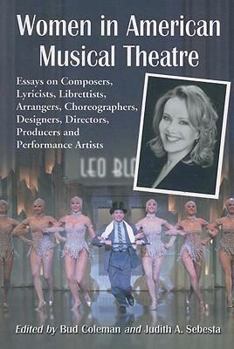Women in American Musical Theatre: Essays on Composers, Lyricists, Librettists, Arrangers, Choreographers, Designers, Directors, Producers and Perform
Throughout the twentieth century women have made significant contributions to the creation of American musical theatre. Directing, choreographing, writing, arranging, producing and designing musicals in a variety of venues throughout America, women have played a significant role in shaping the development of musical theatre both on and off Broadway and in regional, educational, and community venues. The essays in this book examine the history of women in musical theatre, providing biographical descriptions of the women themselves; analyses and interpretations of their productions; and several accounts of how being a woman affected the artists' careers.
Topics include the similarities among the careers of successful but neglected lyricists Rida Johnson Young, Anne Caldwell, and Dorothy Donnelly; the Depression-era productions of Hallie Flanagan and Cheryl Crawford; the transformation of the classic "showgirl" image through the dances and stage movement created by prominent female choreographers; and a survey of numerical data highlighting the discrepancy between the number of men versus the number of women hired to direct professional musical productions in various venues across the United States.





